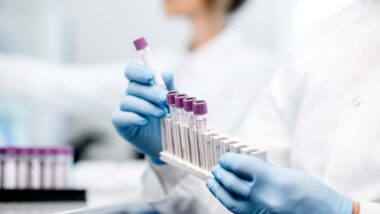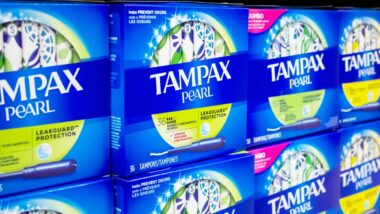Top Class Actions’s website and social media posts use affiliate links. If you make a purchase using such links, we may receive a commission, but it will not result in any additional charges to you. Please review our Affiliate Link Disclosure for more information.
Gynecomastia: Overview
Gynecomastia is the growth or swelling of male breast tissue, commonly associated with a hormonal issue. The condition can affect one or both breasts. The condition may be more common in newborns, pubescent boys, and older men, as all of these groups go through hormonal changes.
Symptoms of Gynecomastia
Generally, the most prominent symptom of gynecomastia is enlarged or swollen breast tissue. Some men may also experience breast tenderness or nipple discharge. Both of these symptoms are signs that medical attention may be needed.
Causes of Enlarged Male Breast Tissue
Generally, gynecomastia is caused by a hormonal imbalance in a man’s estrogen and testosterone levels. If a man has too much estrogen or if their estrogen levels are not balanced out by their testosterone levels, the female hormone can result in the growth of breast tissue.
Enlarged male breast tissue usually is not an isolated issue and is typically caused by another condition.
According the Cleveland Clinic, gynecomastia can be caused by obesity, poor nutrition, testicular or adrenal tumors, liver disease, hyperthyroidism, hypoandrogenism, hypogonadism, and kidney failure.
Drugs may also be implicated in the disease, including:
- Anabolic steroids
- Estrogens
- Enlarged prostate drugs
- Spironolactone, digoxin, amiodarone, and calcium channel blockers
- Proton pump inhibitors
- Valium
- Fungal infection medications
- Bacterial infection medications
- Human chronic gonadotropin
- Illicit drugs such as amphetamines, marijuana, heroin, methadone, and alcohol
Treatment for Gynecomastia
Enlarged male breast tissue is generally not treated because it will resolve on its own. If gynecomastia is caused by an underlying condition, this condition may need to be focused on in treatment in order to reduce enlarged male breast tissue. If a medication is causing the issue, a doctor may recommend an alternative.
There are no drugs approved by the U.S. Food and Drug Administration (FDA) to treat gynecomastia, but a doctor may prescribe tamoxifen and aromatase inhibits like anastrozole. These drugs are used to treat breast cancer and other conditions but may help men with enlarged breast tissue.
In more extreme cases, surgery may be required to remove the excess tissue. Liposuction surgery removes the fat from the breast but retains the breast gland tissue. Mastectomy surgery removes the entire breast, including the breast gland tissue.
Enlarged Male Breast Tissue Complications
There are not many physical complications associated with gynecomastia, but the condition can cause psychological or emotional harm due to the changes in appearance associated with the conditions. These emotional problems may require counseling.
Gynecomastia Lawsuits
Recently, Johnson and Johnson has come under fire for their drug Risperdal (risperidone). This medication is used to treat schizophrenia, bipolar disorder, and irritability associated with pediatric autism. Unfortunately, the drug may also be associated with gynecomastia in children and adults.
Some consumers claim that the condition is permanent, even if Risperdal is discontinued. This allegedly results in severe emotional trauma on top of whatever condition the drug was prescribed to treat.
As a result, Johnson and Johnson reportedly faces hundreds of lawsuits claiming that the failed to warn patients of the risk for gynecomastia.















